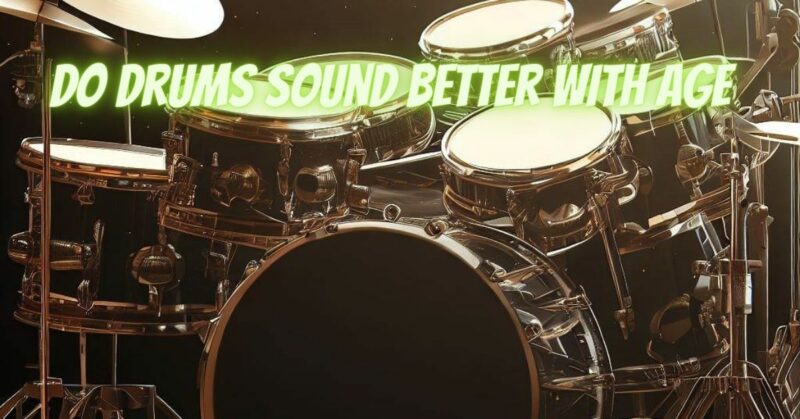As with many musical instruments, drums can evolve in sound over time. The aging process, combined with regular use, can impact the tonal characteristics and overall sound quality of drums. In this article, we will delve into the concept of drums sounding better with age, discussing the factors that contribute to this phenomenon and exploring the unique qualities of mature drums.
- Wood Shells and Aging: Drums with wooden shells, such as those made from maple, birch, or mahogany, are particularly known to benefit from aging. Over time, the wood fibers within the shell gradually settle and mature, resulting in enhanced resonance and a richer, more complex tone. The gradual seasoning of the wood contributes to a distinct warmth and depth in the sound.
- Shell Stabilization: As drums age, the shells undergo a process of stabilization. This involves the gradual acclimation of the wood to its environment, leading to increased structural integrity. Stabilized shells resonate more efficiently and evenly, resulting in a more balanced and harmonious sound.
- Patina and Character: The physical appearance of aged drums can add to their charm and character. Drum finishes may develop a unique patina or wear patterns over time, reflecting the history and experiences of the instrument. While aesthetics do not directly affect sound quality, the visual aspects of aged drums can contribute to a sense of authenticity and craftsmanship.
- Drumhead Break-In: Drumheads play a crucial role in shaping the sound of drums. Over time, drumheads naturally break in through regular use. The repeated vibrations and tension applied to the drumheads help to stretch and settle the material, resulting in a more responsive and nuanced sound. Aged drumheads can offer increased tonal complexity and a desirable blend of attack and sustain.
- Personal Bond: Drummers often develop a personal bond with their instruments over time. This emotional connection can influence the perception of sound quality. The familiarity and intimate relationship formed with a drum kit can contribute to a deeper appreciation and subjective sense of the drums sounding better as they age.
- Individual Variations: It is important to note that the aging process affects each drum uniquely. Factors such as construction, materials, usage, and environmental conditions contribute to the individual sound development of drums. While some drums may exhibit a noticeable improvement in sound quality with age, others may remain relatively stable or experience different changes.
Conclusion:
Drums can indeed exhibit a transformation in sound as they age and mature. The settling of wood fibers, shell stabilization, drumhead break-in, and the development of unique character contribute to the perception of drums sounding better over time. However, the impact of aging on sound quality can vary depending on several factors. Ultimately, the best way to determine whether a drum sounds better with age is to listen to and experience the instrument firsthand. Appreciating the unique qualities of aged drums adds to the beauty and allure of these musical instruments.


